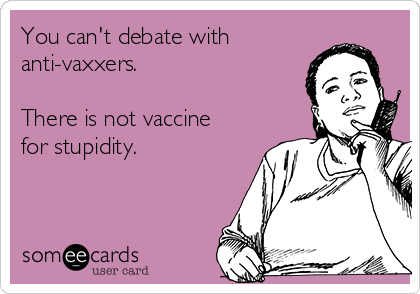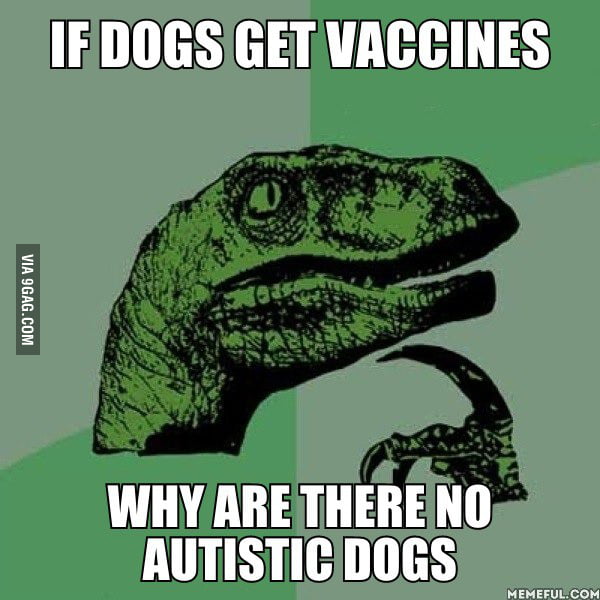-
Posts
4,419 -
Joined
-
Last visited
-
Days Won
16
Content Type
Profiles
Forums
Events
Store
Posts posted by Evan Burton
-
-
Hi Terry - a novelist? Anything published we may have heard of?
I hope to do similar one day; just have to find the time, inspiration and skill to do so!
-
-
-
-
-
-
-
I'm someone who doesn't know the insides & outs of the JFK assassination.
Could you explain what you mean about the TSBD below (my bolding)?
The TSBD was notorious for running guns and drugs - it was watched by the FBI, infultrated by many.
-
-
The 9 Most Crazy Conspiracy Theories In Pop
http://www.nme.com/blogs/nme-blogs/the-9-most-batxxxx-crazy-conspiracy-theories-in-pop
-
Yes - that is why I asked if you want a dedicated thread rather than it being mixed up with numerous "tin foil hat" discussion.
You were asked though, so okay.
-
Steven,
Creationism seems to be close to your heart so if you like, we can start a separate thread devoted to it rather than have it mixed up with the "tin foil hat" thread discussion.
-
Another Aussie - welcome to the Board!
-
If you believe everything you read on the internet, then is seems that a chemical found in thousands of products is causing an epidemic of severe neurological and systemic diseases, like multiple sclerosis and lupus. The FDA, the companies that make the product, and the “medical industrial complex” all know about the dangers of this chemical but are hiding the truth from the public in order to protect corporate profits and avoid the pesky paper work that would accompany the truth being revealed. The only glimmer of hope is a dedicated band of bloggers and anonymous e-mail chain letter authors who aren’t afraid to speak the truth. Armed with the latest anecdotal evidence, unverified speculation, and scientifically implausible claims, they have been tirelessly ranting about the evils of this chemical for years. Undeterred by the countless published studies manufactured by the food cartel that show this chemical is safe, they continue to protect the public by spreading baseless fear and hysteria.
Hopefully, you don’t believe everything you read on the internet, and you don’t get your science news from e-mail SPAM, where the above scenario is a common theme. While there are many manifestations of this type of urban legend, I am speaking specifically about aspartame – an artificial sweetener used since the early 1980s. The notion that aspartame is unsafe has been circulating almost since it first appeared, and like rumors and misinformation have a tendency to do, fears surrounding aspartame have taken on a life of their own.
http://www.sciencebasedmedicine.org/aspartame-truth-vs-fiction/
-
Germany court orders measles sceptic to pay 100,000 euros
A German biologist who offered €100,000 (£71,350; $106,300) to anyone who could prove that measles is a virus has been ordered by a court to pay up.
Stefan Lanka, who believes the illness is psychosomatic, made the pledge four years ago on his website.
The reward was later claimed by German doctor David Barden, who gathered evidence from various medical studies. Mr Lanka dismissed the findings.
But the court in the town of Ravensburg ruled that the proof was sufficient.
-
-
No evidence homeopathy works, research council finds
A comprehensive review of research on homeopathy has concluded there is no reliable evidence that it is effective in treating health conditions.The findings, released by the National Health and Medical Research Council on Wednesday, are based on an assessment of more than 1800 scientific papers.>>>"People who choose homeopathy may put their health at risk if they reject or delay treatments for which there is good evidence for safety and effectiveness," Professor Anderson said. -
Hi Lesley!
I'm not involved in education but I'd like to see what responses you get.
I get the impression that there is too much "soft" education, not enough hard stuff like maths and science.
Cheers!
-
A wall of text is an excessively long post to a noticeboard or talk page discussion.
-
'
7. Inability to withdraw. It's a rare day indeed when a conspiracy theorist admits that a claim they have made has turned out to be without foundation, whether it be the overall claim itself or any of the evidence produced to support it. Moreover they have a liking (see 3. above) for the technique of avoiding discussion of their claims by "swamping" - piling on a whole lot more material rather than respond to the objections sceptics make to the previous lot.http://educationforum.ipbhost.com/index.php?showtopic=21708#entry296644
-
They did forget one:
Post in large font because it means its important!
-
6. Inability to tell good evidence from bad. Conspiracy theorists have no place for peer-review, for scientific knowledge, for the respectability of sources. The fact that a claim has been made by anybody, anywhere, is enough for them to reproduce it and demand that the questions it raises be answered, as if intellectual enquiry were a matter of responding to every rumour. While they do this, of course, they will claim to have "open minds" and abuse the sceptics for apparently lacking same.
http://educationforum.ipbhost.com/index.php?showtopic=21708#entry296644
5. They use the term term Big Pharma (or Big Anything) in all seriousness
There are about a 1000 problems with the pharmaceutical industry, for sure. However, when your friend is talking about “Big Pharma” they are not usually talking so much about overpriced cancer medication as they are like, vaccines causing autism and things like that. Also, sane people, when discussing the problems with the pharmaceutical industry just do not say things like “Big Pharma” because they like being taken seriously.
http://educationforum.ipbhost.com/index.php?showtopic=21708#entry296647
-
Tick ("check", perhaps, if you're American)
Tick
Tick
Tick
Yep Steven, you just can't help but demonstrate those criteria, can you?
-








DEPOPULATION - what elites want -
in Political Conspiracies
Posted